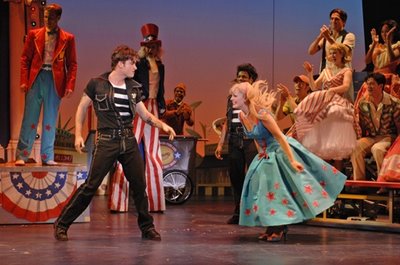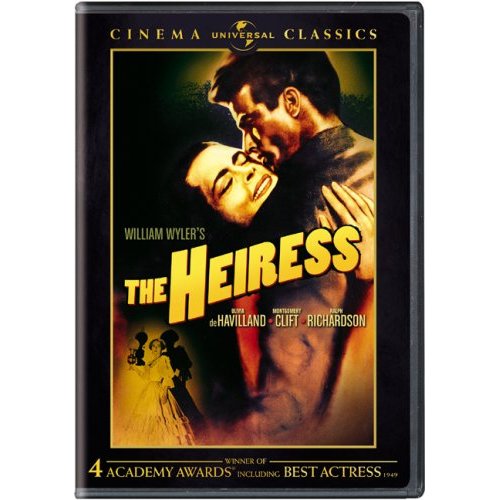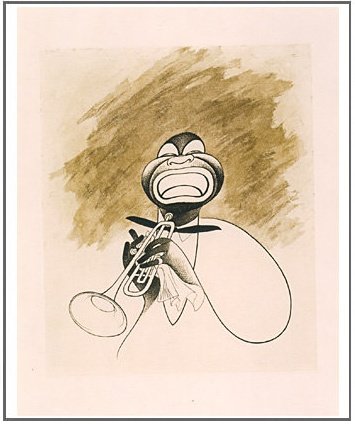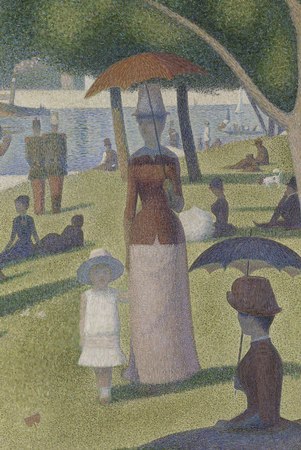The big deal arts-wise in Asheville this weekend is the inaugural WordFest, a poetry festival featuring a number of local and visiting poets at readings and talks around the city. It kicked off last night, and events continue through Sunday night. The website features live video so, if you can’t make it, you can tune in remotely.
I tend not to share my jetting-around calendar here because, as you may have gathered from all the excitement about the Jane Austen marathon on PBS a while back, there’s usually not much to report. But I’m looking forward to this weekend:
• Friday: Drinks with my friend Robert McGee, who has a new story in the just-launched Raleigh Quarterly.
• Saturday afternoon: Blue Ridge Rollergirls recruitment session at Malaprop’s.*
• Saturday night: Fatemeh Keshavarz and Galway Kinnell reading at Asheville WordFest.
• Sunday: Harold and Kumar Escape From Guatanamo Bay!!
* This has bad idea written all over it, but I can’t help it: I want to roll! I went to a match last weekend and it was, not to put too fine a point on it, awesome. Also, I seem to have come to the point in writing the book where even getting body-checked sounds more appealing than sitting in front of the computer any longer.
Archives for April 2008
TT: Just add Waters
Two raves in today’s Wall Street Journal drama column, one on Broadway (Cry-Baby) and one out of town (Paper Mill Playhouse’s Kiss Me, Kate). Yay! Here’s an excerpt.
* * *
You want funny? I’ll give you funny, or at least tell you where to find it: “Cry-Baby,” the new John Waters musical, is campy, cynical, totally insincere and fabulously well crafted. And funny. Madly, outrageously funny. It is, in fact, the funniest new musical since “Avenue Q,” give or take “The Drowsy Chaperone.” If laughter is the best medicine, then “Cry-Baby” is the whole damn drugstore.
 Like the 1990 film on which it is based, “Cry-Baby” is a teen-musical spoof in which the standard bad-boy-meets-nice-girl plot is put through the shredder and turned into a zany spoof of buttoned-down ’50s conformism…..
Like the 1990 film on which it is based, “Cry-Baby” is a teen-musical spoof in which the standard bad-boy-meets-nice-girl plot is put through the shredder and turned into a zany spoof of buttoned-down ’50s conformism…..
This way lies trouble, for nothing in musical comedy is harder to bring off than a pure parody, since it deliberately omits the magic ingredient that makes most successful musicals run forever, which is sentiment. An unfelt musical is by definition emotionally hollow at the core, and so it lives or dies on the strength of its wit. If it isn’t brilliant but merely clever, it loses steam and limps past the finish line. That’s the great thing about “Cry-Baby”: It never goes limp. Broadway debutants David Javerbaum (the executive producer of “The Daily Show”) and Adam Schlesinger (the bassist of the brainy rock band Fountains of Wayne) have written an unbroken string of super-smart pop-music genre send-ups that are both unexpectedly hummable and full of neat rhymes…
Cole Porter launched his career by writing old-fashioned musicals with tissue-thin plots and immortal songs, and lived just long enough to see the coming of shows whose books were dramatically sound–and to write one himself. “Kiss Me, Kate,” the musical version of “The Taming of the Shrew” that Porter wrote in 1948 in collaboration with Sam and Bella Spewack, is one of the three or four best Broadway musicals of the “Oklahoma!” era, a masterpiece of tunefulness and charm. It doesn’t get performed nearly often enough, though, so I urge you to head out to New Jersey to see Paper Mill Playhouse’s new revival, which couldn’t be more satisfying….
James Brennan, who directed Paper Mill’s superb 2004 production of “She Loves Me,” has done even better by “Kiss Me, Kate,” working closely with Patti Colombo, whose dance numbers are seamlessly interwoven with the dialogue scenes. Ms. Colombo is one of the most imaginative musical-comedy choreographers around–her staging of “Too Darn Hot” stopped the show–and I can’t see why Broadway hasn’t snapped her up.
* * *
Read the whole thing here.
TT: Copland in Hollywood
 It’s always puzzled me why Aaron Copland’s film music isn’t better known. He wrote the scores for four major Hollywood films, Of Mice and Men, Our Town, The Red Pony, and The Heiress, the last of which won him a best-score Oscar in 1949. These scores were hugely influential in Hollywood–Copland more or less created the “American sound” that can be heard in such better-known scores as Hugo Friedhofer’s The Best Years of Our Lives and Jerome Moross’ The Big Country–and the films themselves attracted a fair amount of critical attention, The Heiress in particular. Yet none of Copland’s film scores has been recorded in its entirety, nor has anyone written a book specifically devoted to his film music. Why not?
It’s always puzzled me why Aaron Copland’s film music isn’t better known. He wrote the scores for four major Hollywood films, Of Mice and Men, Our Town, The Red Pony, and The Heiress, the last of which won him a best-score Oscar in 1949. These scores were hugely influential in Hollywood–Copland more or less created the “American sound” that can be heard in such better-known scores as Hugo Friedhofer’s The Best Years of Our Lives and Jerome Moross’ The Big Country–and the films themselves attracted a fair amount of critical attention, The Heiress in particular. Yet none of Copland’s film scores has been recorded in its entirety, nor has anyone written a book specifically devoted to his film music. Why not?
You guessed it–Copland’s film music is the subject of my “Sightings” column in Saturday’s Wall Street Journal. Pick up a copy of tomorrow’s paper, turn to the “Weekend Journal” section, and read all about it.
UPDATE: Read the whole thing here.
TT: Almanac
LLOYD: That bitter cynicism of yours is something you’ve acquired since you left Radcliffe.
KAREN: That cynicism you refer to I acquired the day I discovered I was different from little boys.
Joseph L. Mankiewicz, screenplay for All About Eve
TT: A pair of hats
 I’m used to being busy, but somehow it failed to occur to me when I agreed two years ago to collaborate with Paul Moravec on The Letter that I might find myself finishing an opera libretto and a book at the same time. Yet that’s what happened, and the time is now. I finished writing the final chapter of Rhythm Man: A Life of Louis Armstrong yesterday afternoon, and Paul is composing the final scene of The Letter. All this is happening at the height of the New York theater season, which means that I’ll be seeing three or four shows a week between now and May 7, the cutoff date after which Broadway shows are no longer eligible for this year’s Tony Awards.
I’m used to being busy, but somehow it failed to occur to me when I agreed two years ago to collaborate with Paul Moravec on The Letter that I might find myself finishing an opera libretto and a book at the same time. Yet that’s what happened, and the time is now. I finished writing the final chapter of Rhythm Man: A Life of Louis Armstrong yesterday afternoon, and Paul is composing the final scene of The Letter. All this is happening at the height of the New York theater season, which means that I’ll be seeing three or four shows a week between now and May 7, the cutoff date after which Broadway shows are no longer eligible for this year’s Tony Awards.
The bad part about being so busy is that I’m occasionally tired enough to fall on my face. The good part is that I haven’t had time to worry about the book, the opera, or anything else. If it’s a virtue to live in the moment–and I’m not so sure it is–then right now I’m the most virtuous guy in New York City. For the past couple of weeks I’ve been getting up, going to work, eating, going back to work, going to bed, then starting over again the next day.
I finished my last book four years ago, on which occasion I had this to say:
Three months ago, All in the Dances didn’t exist. Over the years I’d told dozens of people all about George Balanchine’s life and work, but every time I had to start fresh. Now there’s an inch-thick pile of paper on my kitchen table with a title page on top, the gateway to a world I made, and even though I’ll be reviewing a Broadway play tomorrow morning, then writing my Washington Post column in the afternoon, part of me is still back in that world of shadows.
Since then I’ve constructed a brand-new world of shadows, and spent large chunks of my waking hours living in it. Most of them have been happy–Satchmo is a very agreeable man with whom to pass your days–but once Santa Fe Opera commissioned The Letter and told Paul and me that they wanted to give the premiere in the summer of 2009, I’ve been tied to a pair of not-quite-parallel tracks. It was around then that Mrs. T and I decided to get married, which added yet another layer of happy complication to my life. So now I’m trying to get used to the fact that once I finish editing and polishing Rhythm Man and deliver the manuscript to Andrea Schulz, my editor at Harcourt, that same life, full though it is, will have a book-sized hole in it.
 Four years ago I recalled the lyric to a song by Stephen Sondheim as I wrote the last page of All in the Dances:
Four years ago I recalled the lyric to a song by Stephen Sondheim as I wrote the last page of All in the Dances:
Finishing the hat,
How you have to finish the hat.
How you watch the rest of the world
From a window
While you finish the hat….
Making art–and a biography is a work of art, more or less–is a strange sensation. During your working hours you really do watch the rest of the world from a window, yet at the same time you don’t fully feel the act of creation in which you’re involved. Hours slip by without your being aware of their passing, and all at once you look up and the sun has set. On Wednesday I got up at eight, went to work at eight-thirty, and stopped writing at six-forty-five to dress for the theater, and the only person I spoke to during that time (except for a brief call to Mrs. T in Connecticut at midday) was the waitress from whom I ordered my lunch. When I was done I’d written eight thousand words, the equivalent of eight Wall Street Journal drama columns, yet I barely noticed that I was writing them until I was through. I was thinking about the last eight years of Louis Armstrong’s life and turning my thoughts into words and sentences and paragraphs, and by then I was so deeply immersed in the process of finishing my book that I was all but unconscious of it.
I blogged about this sensation, or lack of it, three years ago:
I write fast. It takes me, for example, two and a half hours to knock out a thousand-word Wall Street Journal drama column (except when I’m sick). This isn’t exactly freakish, but it’s quick enough to stagger many of my friends and colleagues. I can’t explain my facility, so I joke about it, but the fact is that I, too, find it mystifying, though it’s not the speed that puzzles me–it’s that I don’t really know where all those words come from in the first place. On occasion I may spend a few minutes tinkering with a punch line until I hear it go click, and of course I edit and polish the surfaces of my pieces as painstakingly as time permits, but beyond that I have next to no insight into the thought processes that cause them to pour out of my fingers.
It occurs to me that this seeming incomprehension may have something to do with the fact that I am (or was) as much a musician as a writer. Music, after all, is a non-verbal art form, and the only descriptions of the creative experience that ring true to my ear are those of composers. “I am the vessel through which Le Sacre passed,” Igor Stravinsky said of the writing of The Rite of Spring. When I first ran across that remark I thought, That’s exactly how it feels when I write a piece–it passes through me.
Now Rhythm Man has passed through me, and from here on out my involvement with its creation will be conscious. Editing and polishing are acts of which I am entirely aware, and which I find highly pleasurable. I wouldn’t exactly say, by contrast, that writing is pleasurable, any more than breathing is pleasurable. It’s what I do.
The first thing I did after finishing the book, by the way, was back up my hard drive. (Never let it be said that I don’t learn from experience, sometimes.) Then I called Mrs. T in Connecticut, followed by my mother in Smalltown, U.S.A. Then I took a shower and went out to get some dinner. Then I sat around for a couple of hours, pretending to look at a movie. Then I went to bed. Today I have a “Sightings” column to write for Saturday’s Wall Street Journal, after which Mrs. T will be arriving in New York. Yes, we’ll celebrate–and then I’ll get back to work on The Letter. There’s always another hat.
TT: So you want to see a show?
Here’s my list of recommended Broadway, off-Broadway, and out-of-town shows, updated weekly. In all cases, I gave these shows favorable reviews (if sometimes qualifiedly so) in The Wall Street Journal when they opened. For more information, click on the title.
Warning: Broadway shows marked with an asterisk were sold out, or nearly so, last week.
BROADWAY:
• Avenue Q (musical, R, adult subject matter and one show-stopping scene of puppet-on-puppet sex, reviewed here)
• A Chorus Line (musical, PG-13/R, adult subject matter, reviewed here)
• Grease * (musical, PG-13, some sexual content, reviewed here)
• Gypsy * (musical, PG-13, adult subject matter, reviewed here)
• In the Heights (musical, PG-13, some sexual content, reviewed here)
• The Little Mermaid * (musical, G, entirely suitable for children, reviewed here)
 • Macbeth * (drama, PG-13, unsuitable for children, closes May 24, reviewed here)
• Macbeth * (drama, PG-13, unsuitable for children, closes May 24, reviewed here)
• November (comedy, PG-13, profusely spattered with obscene language, reviewed here)
• Passing Strange (musical, PG-13, adult subject matter, reviewed here)
• South Pacific * (musical, G/PG-13, some sexual content, brilliantly staged but unsuitable for viewers acutely allergic to preachiness, reviewed here)
• Sunday in the Park with George * (musical, PG-13, too complicated for children, closes June 29, reviewed here)
OFF BROADWAY:
• Adding Machine (musical, PG-13, adult subject matter, too musically demanding for youngsters, extended through Aug. 31, reviewed here)
• The Four of Us (comedy, PG-13, adult subject matter, extended through May 18, reviewed here)
• From Up Here (drama, PG-13, closes June 8, reviewed here)
ON TOUR:
• Moby-Dick–Rehearsed (drama, G, not suitable for children, touring the U.S. through May 17, reviewed here)
CLOSING SATURDAY IN WESTPORT, CONN.:
• Time of My Life (serious comedy, PG-13, adult subject matter, closes Apr. 26, reviewed here)
CLOSING SUNDAY IN PROVIDENCE, R.I.:
• Blithe Spirit (comedy, G/PG-13, some adult subject matter, closes Apr. 27, reviewed here)
REOPENING NEXT WEEK ON BROADWAY:
• Alfred Hitchcock’s The 39 Steps * (comedy, G, suitable for bright children, reopens Apr. 29 at the Cort Theatre for an open-ended run, reviewed here)
• August: Osage County (drama, R, adult subject matter, reopens Apr. 29 at the Music Box Theatre for an open-ended run, reviewed here)
TT: Almanac
“The labor of keeping house is labor in its most naked state, for labor is toil that never finishes, toil that has to be begun again the moment it is completed, toil that is destroyed and consumed by the life process.”
Mary McCarthy, “The Vita Activa”
CAAF: Afternoon coffee
• Jessa Crispin files a great, candid dispatch from the London Book Fair:
If Book Expo America is a carnival — full of people desperately trying to draw attention to themselves with costumes, sway, and the occasional barely dressed woman — then the London Book Fair has all the atmosphere of an accountancy seminar. We are here at Earl’s Court to make deals and sell product, with brief breaks to discuss why we are not selling much product anymore.
• Small Beer Press is making Maureen McHugh’s book of short stories, Mothers & Other Monsters, available for free download. This news has already been widely linked to, but it’s a fantabulous book, one of my favorite collections of the last few years, and so I wanted to draw your attention there just in case. If you follow that link, you’ll see it’s the third book the press is making available this way — the two others are Kelly Link’s Stranger Things Happen (which I trust you’ve read, but David Orr fears you haven’t) and John Kessel’s The Baum Plan for Financial Independence and Other Stories (which I haven’t read yet, but which comes highly recommended from a trusted source.)
• “He’d dead, Jim.”
Here’s where I can insert that at our local Asheville Pizza & Brewing Company, a very good pizza joint with a dollar theater attached (and a place where you should always tip handsomely because my stepson works there), there’s a menu item called the William Shatner Cheese Quesadilla. If you click through and watch the item above, there’s a moment that’s like a giant, delicious mouthful of William Shatner Cheese Quesadilla.
• While you were asleep last night, William T. Vollmann was hopping a train with a couple bums in Taipei. While you were brushing your teeth, he was sleeping with a hooker in Mexico City. And while you ate your cereal this morning, he banged out 10,000 pages on his next book. (Even as I type this he is teaching some Filipino convicts the routine to “Thriller.”) So, maybe it’s not too surprising that with a writer of such profligacy, sometimes he lands his metaphor … and sometimes he misses.
